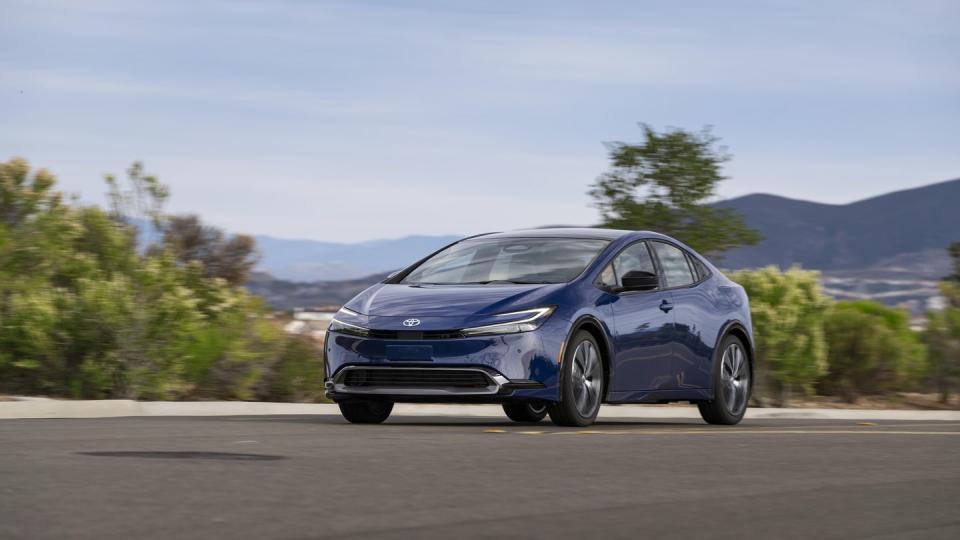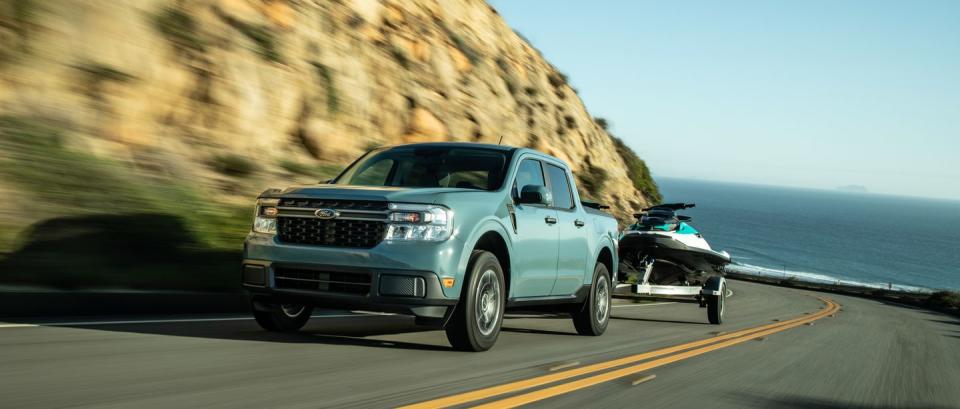Are Hybrid Cars Worth It?

As the first gas-electric hybrid car sold in the U.S. since the 1920s, the 2000 Honda Insight achieved 52 mpg combined, a record that would stand unbeaten for 16 years. But it cost $20,000 at a time when a Civic started at just under $11,000. The Insight had only two seats and three cylinders. Also, it was pitifully slow.
The first Toyota Prius, which arrived seven months later, was the same price. But even a real back seat couldn't move the first Prius beyond Larry David and other greenie devotees. It wasn't until the second-generation Prius that sales really took off, partially because its price was inline with that of other similarly sized cars.
Government Incentives and Tax Breaks for Hybrid Vehicles
Today there are 51 variants of gas-electric hybrids sold in the U.S. for the 2024 model year, according to the Environmental Protection Agency. This list contains a variety of cars, from the Ford F-150 to the parallel-hybrid Prius (now with an EPA combined rating of up to 57 mpg, despite a tougher test methodology than back when the first Honda Insight achieved 52 mpg). The EPA's list is broken out to every possible trim (such as the front-wheel drive Honda CR-V hybrid and the all-wheel drive version counting as two variants). We're not including vehicles that the EPA labels "mild hybrids," whose small electric motor largely serves the function of a start-stop system.

Plug-in hybrids, which can charge their battery packs via an external plug and drive short distances on electricity alone, are also not included on this list. Unlike their plug-in peers, run-of-the-mill hybrids are not eligible for the federal government's electric vehicle incentives. Even so, interest in hybrids continues to climb and the options available to consumers today span nearly every vehicle size, category, and price point.
Making the Decision: Is a Hybrid Car Right for You?
For compact and midsize cars and SUVs, a hybrid option is usually worth the additional upfront cost over their gas-only counterparts. Take Toyota and Honda, which offer hybrid versions of popular vehicles such as the Camry, RAV4, Accord, and CR-V. In each case, going the hybrid route adds a couple of thousand dollars to the bottom line. Still, the percentage increase in price is a comparative fraction of the estimated percentage increase in fuel efficiency these vehicles return. And in each instance, hybrids even offer more overall power and torque (and in some cases, standard equipment) than the entry-level four-cylinder engines that motivate the strictly gas-powered models.
For instance, the cheapest 2024 RAV4, a $30,025 gas-powered LE stickers for $3050 less than the gas-electric RAV4 LE hybrid. The latter, however, comes standard with all-wheel drive, a $1400 option on the gas SUV, effectively narrowing the gap to $1650. Using the EPA combined rating of 30 mpg for the RAV4 LE (both front- and all-wheel-drive models) and the all-wheel-drive RAV4 LE hybrid's 39 mpg, respectively, nets an annual fuel savings of $400 per year over 15,000 miles by going the gas-electric route. While individuals who rarely hold onto vehicles for more than a couple of years may be better off putting their money behind the gas-only Toyota compact SUV, those who hold onto their car for years will find the RAV4 hybrid makes up for its initial upfront costs over the all-wheel-drive gas model in just over four years. (This rises to nearly eight years if you're willing to sacrifice all-wheel drive and snag a front-drive gas RAV4 LE, though.)


 Yahoo Autos
Yahoo Autos 